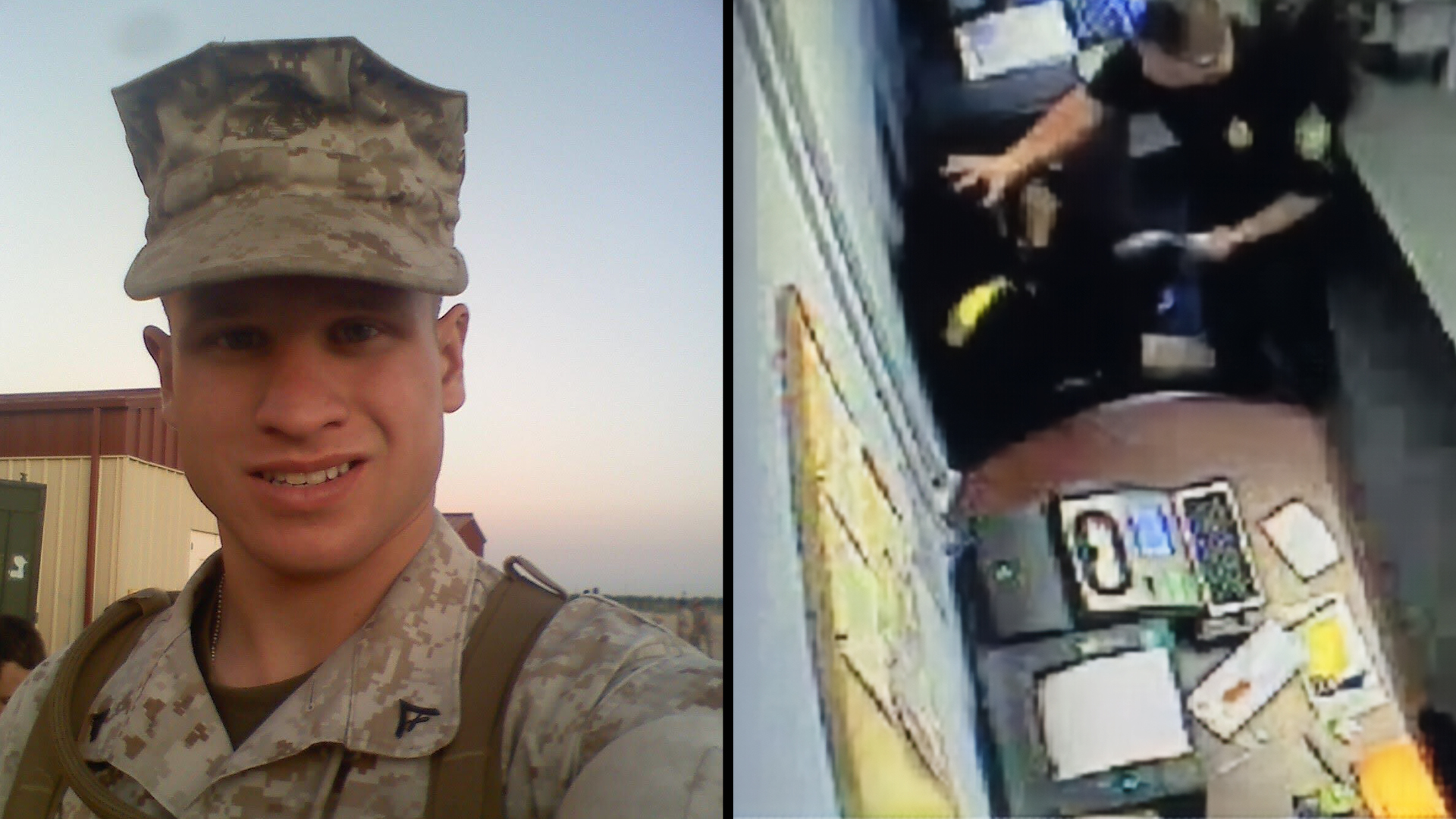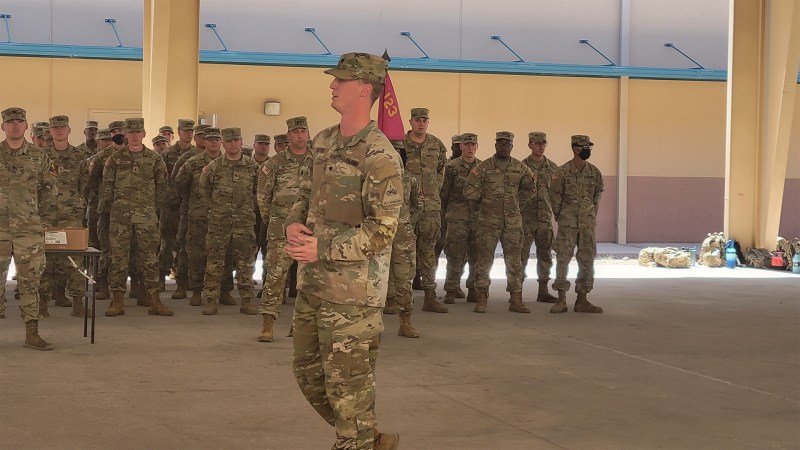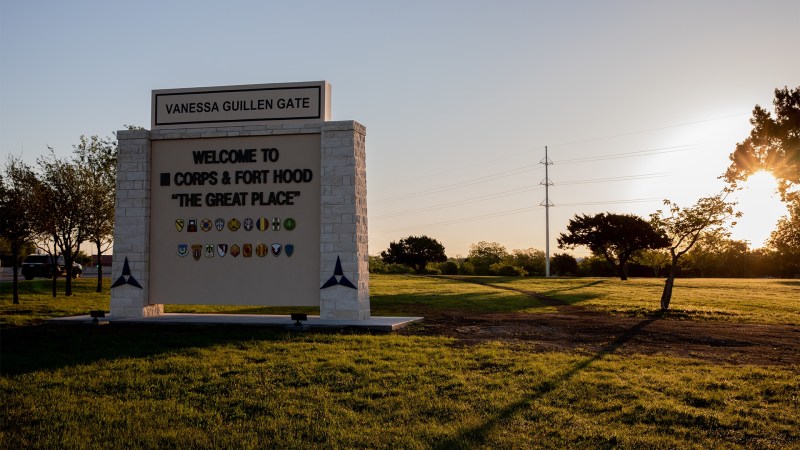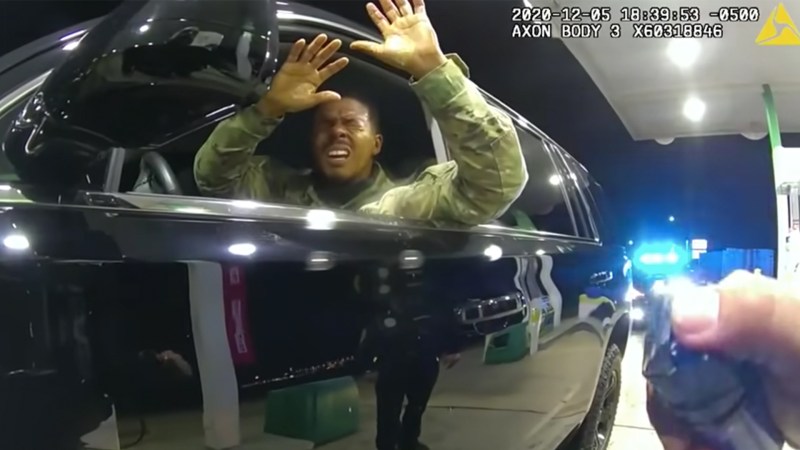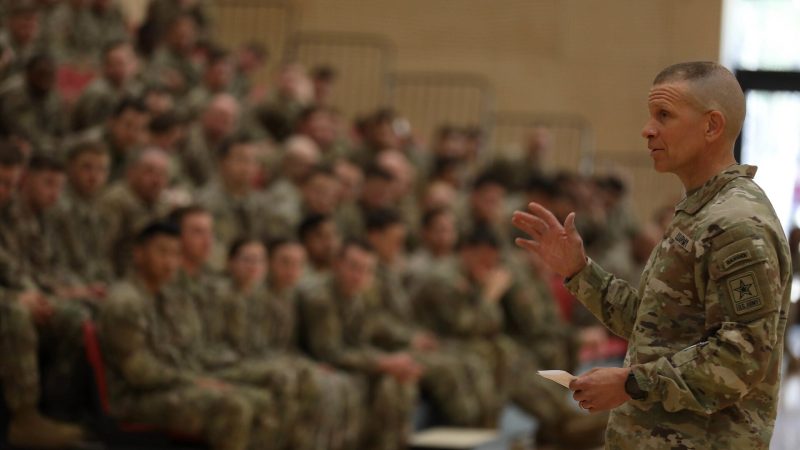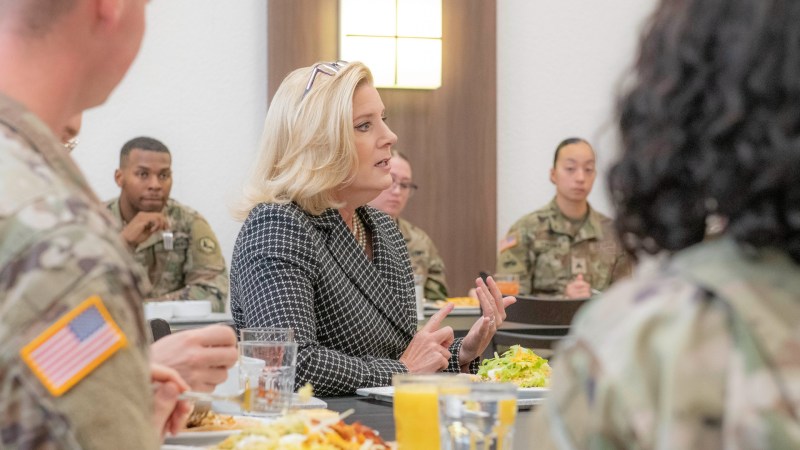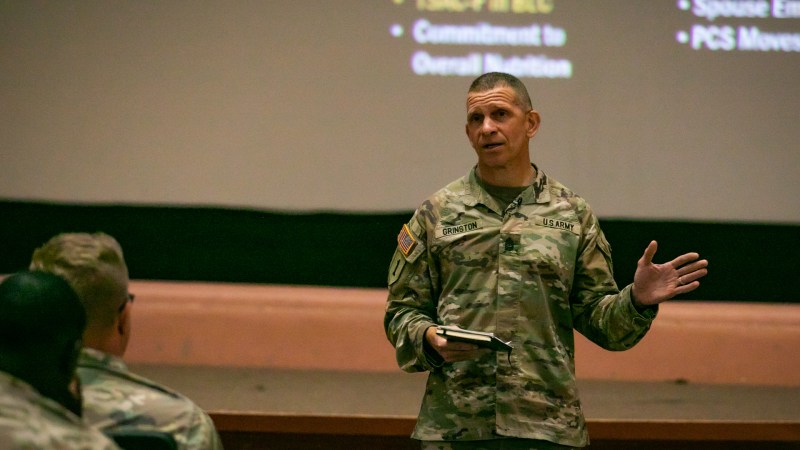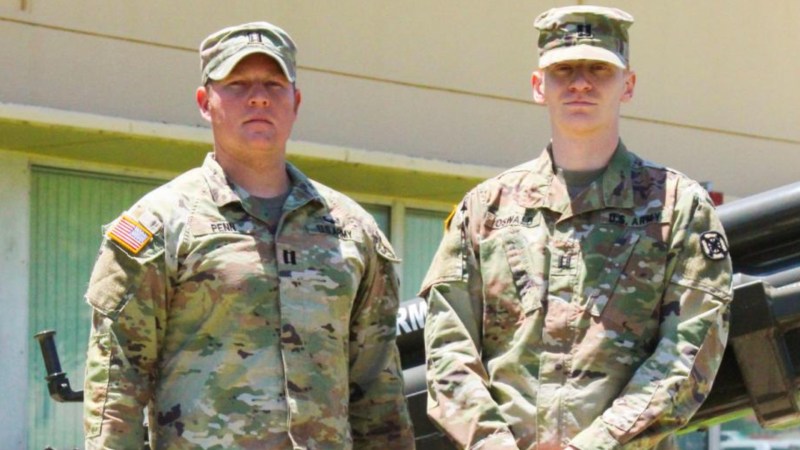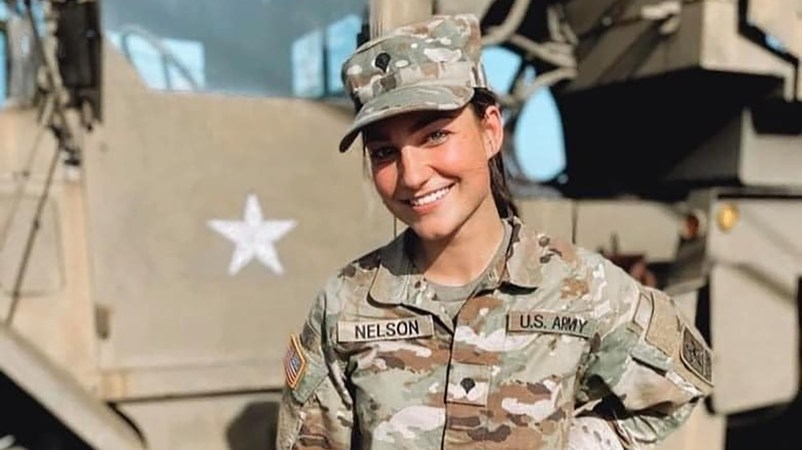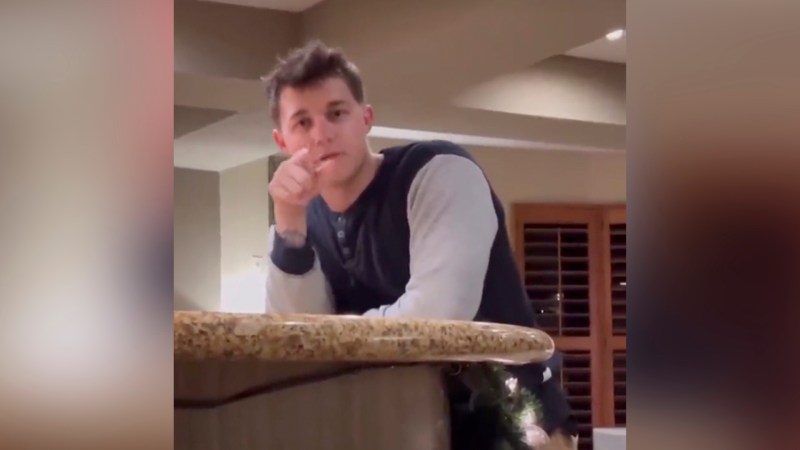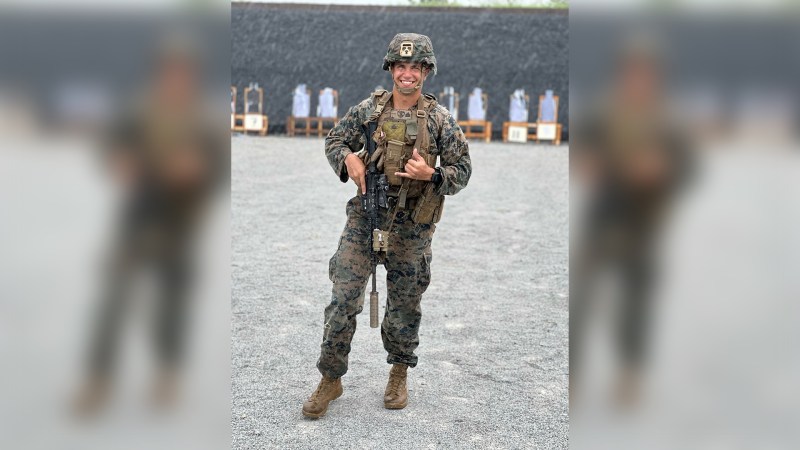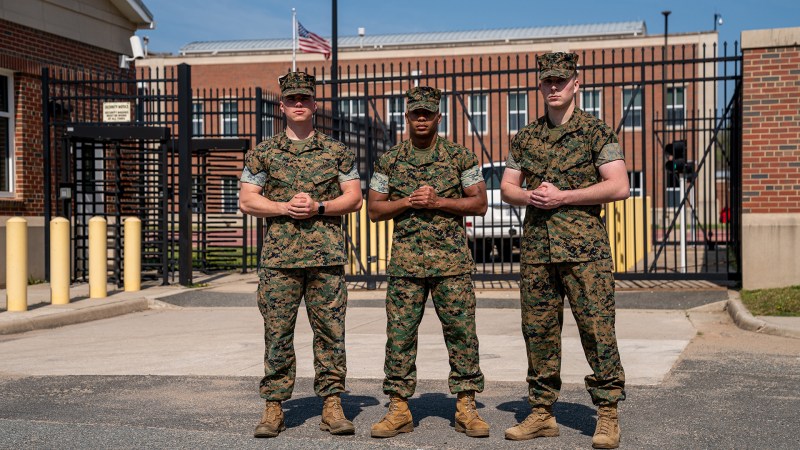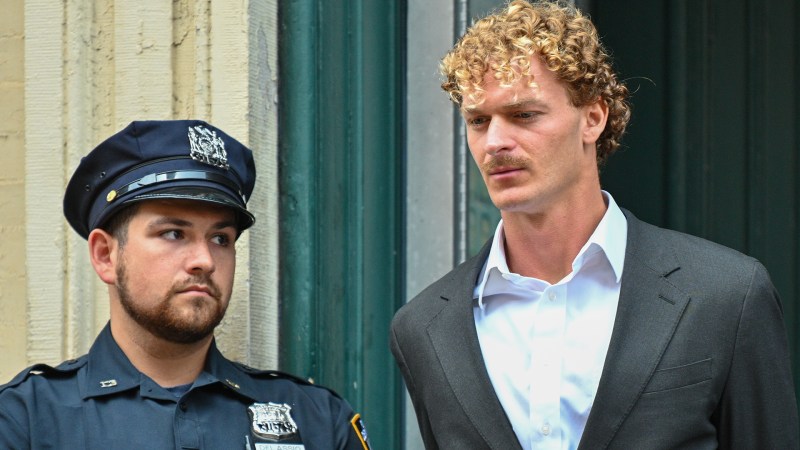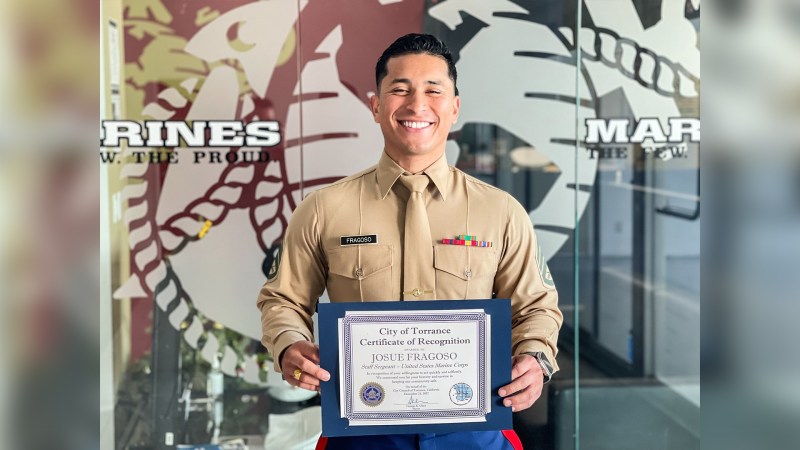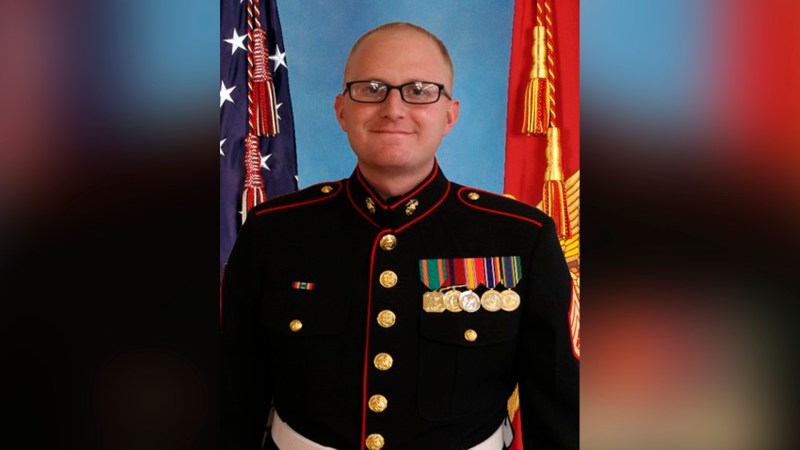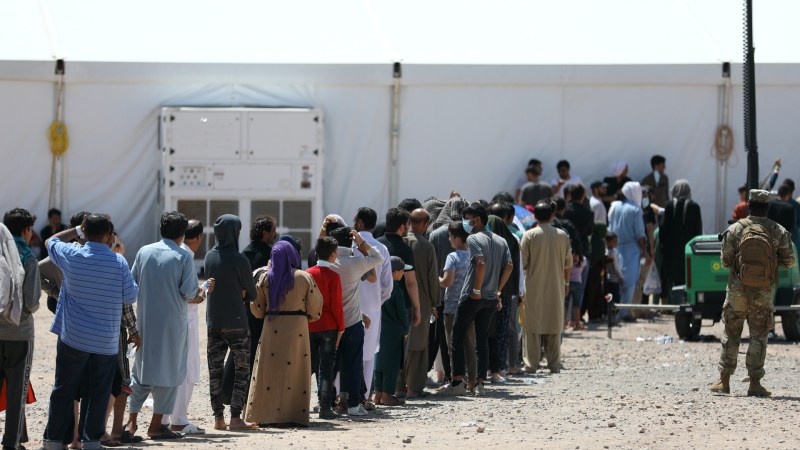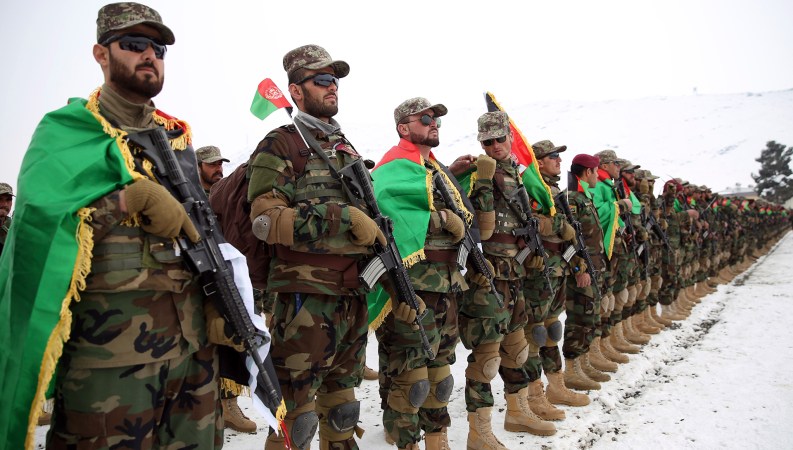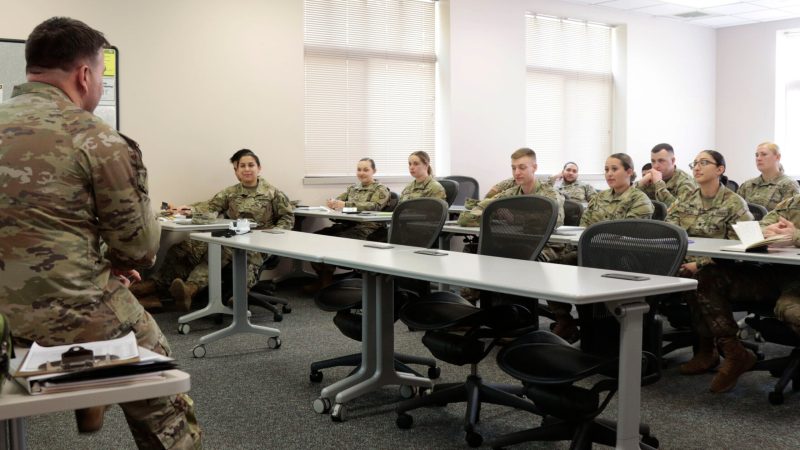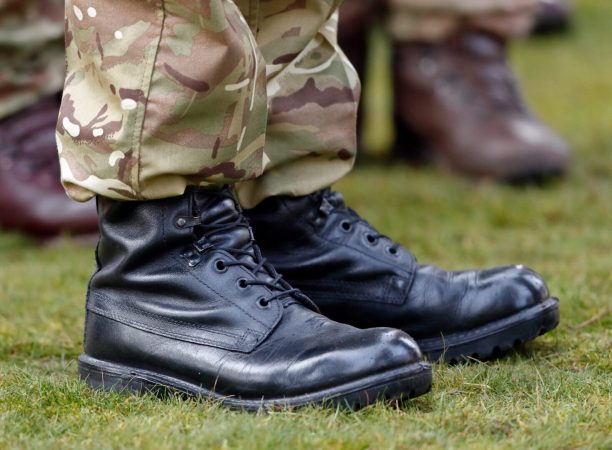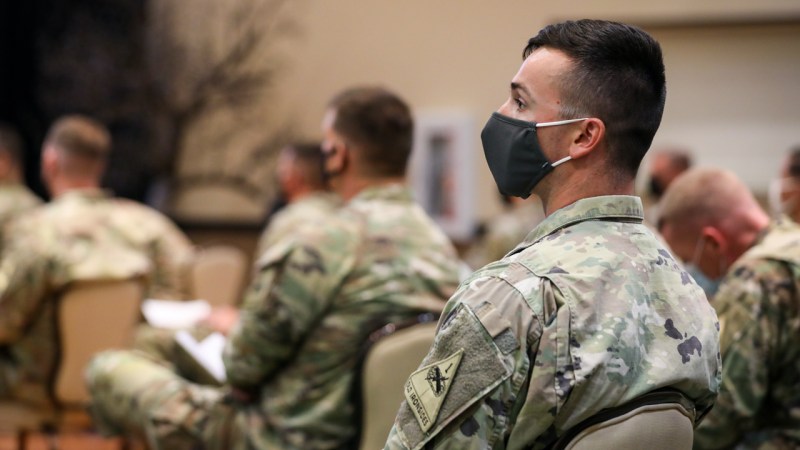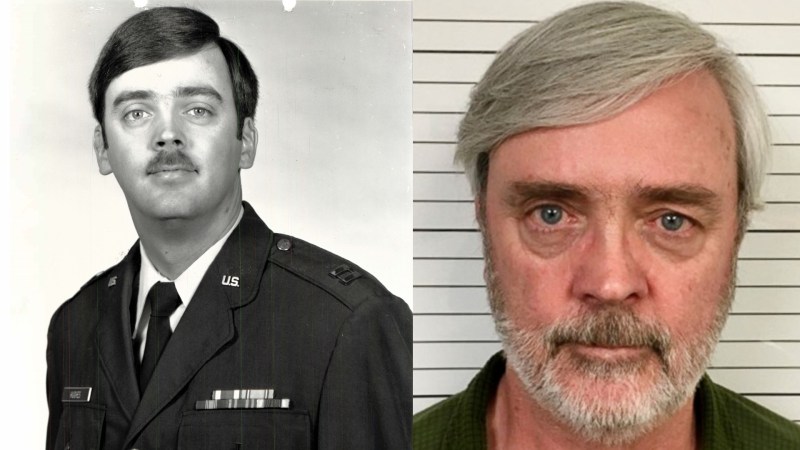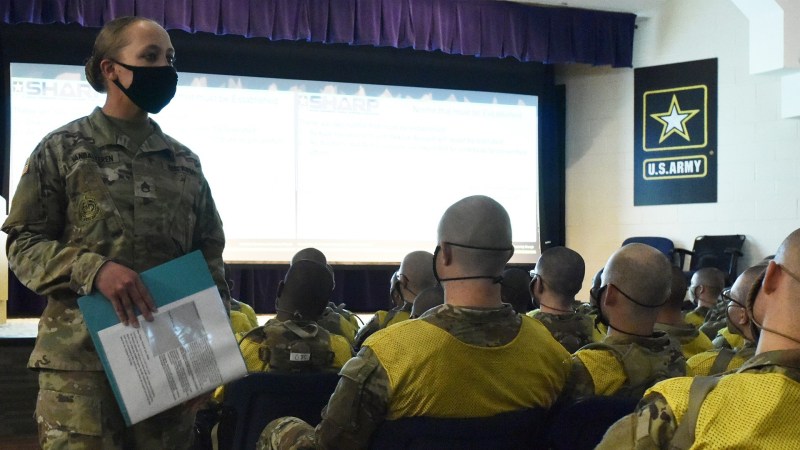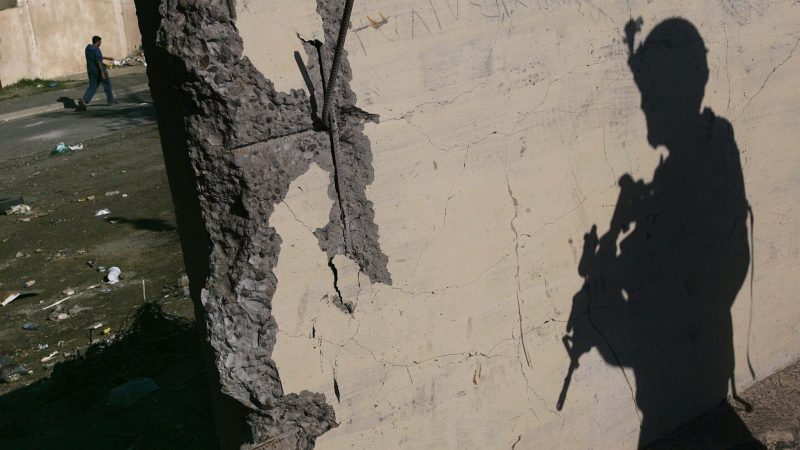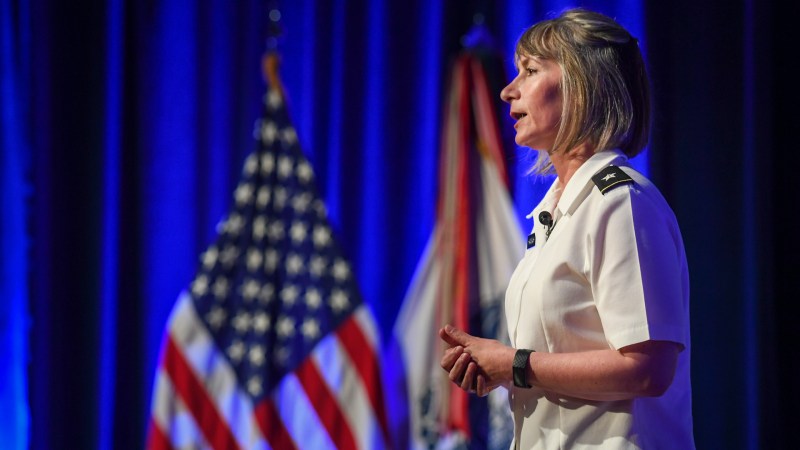A former Marine who worked as a police officer at Joint Base Lewis-McChord said his on-duty actions were misrepresented when a local Fox news station broadcast security footage of his attempt to obtain a DNA swab from a female soldier last spring. When the woman refused, the officer attempted to hold her head, leading to a struggle between the two.
The story frames what happened as one of a series of incidents of misconduct by the officer, Timothy R. Scholl, that was allowed to continue as a result of a “good old boy system” in JBLM police leadership.
Scholl was cleared of wrongdoing by leadership at the JBLM Police Department after the incident.
Scholl is a former Marine and told Task & Purpose that the video captures him dealing with a soldier who was refusing to cooperate during an authorized examination at the JBLM Police Department. The soldier, Scholl said, had been sent to the police department by her leadership on suspicion of being intoxicated at a morning formation and told Scholl she was “high.”
Scholl now works for the Department of Homeland Security.
The video is from May 2023. In it, Scholl has what appears to be a physical altercation with a female soldier as he tries to DNA swab the soldier’s cheek for a blood alcohol concentration test.
Scholl said he noted that the soldier’s demeanor was odd and that her eyes were dilated and bloodshot. He attempted to swab the soldier’s interior cheek multiple times, but she clenched her jaw and refused. He said he tried to hold her head still to obtain the sample, which he believed was appropriate.
“I did not strike her in the face or anything like that or swipe at her,” Scholl told Task & Purpose. “I was literally just trying to use the DNA swab.”
In the report on the local news station, Fox 13, the former female soldier spoke anonymously and said the experience was terrifying. She has since left the Army, Fox 13 said.
Scholl said that after the soldier refused the DNA swab, he contacted the soldier’s command. He told Task and Purpose that she said she was not drunk but “high.” Scholl said he could not confirm whether she was intoxicated but he believed the soldier later complied with a mandated urinalysis.
The investigation into the incident is closed, according to JBLM officials.
The police department at JBLM is staffed by officers who are federal law enforcement officers under the Department of the Army but are not in the military. The base also has military police, who fall under the Provost Marshal’s office.
Collecting BAC samples via a DNA swab is authorized by rules under which JBLM police operate. JBLM Garrison Public Affairs Officer Joe Pieck confirmed the rules surrounding a JBLM police officer collecting a DNA sample.
“Army law enforcement officers are authorized to collect DNA samples from servicemembers upon determination of probable cause that the service member committed an offense under the UCMJ punishable by imprisonment,” Pieck said. “Such individuals are required by law and policy to provide DNA. Law enforcement officers are authorized to use reasonably necessary means to detain, restrain, and collect DNA from an individual who refuses to cooperate.”
‘Wouldn’t let him be a mall cop’
Much of the Fox 13 report is interviews with two anonymous police officers about Scholl. Fox says the officers “smuggled” the surveillance video out of the JBLM police department. Both say Scholl was a problem officer who “I wouldn’t even let him be a mall cop” and that “a cooler head would have prevailed in that situation.”
Fox 13 also reported that Scholl had been reprimanded several times, both on duty and during training. At least once, Fox 13 found, Scholl arrested a civilian walking on a road that travels through JBLM, though the road itself is public. Scholl argues the circumstances surrounding that arrest, saying his senior officers told him to cite someone for jaywalking next time the easement line is unclear so that the detainment is legal.
One supervisor wrote in a counseling memo following the incident that Scholl “lacks the fundamental training and understanding of basic Police concepts and safe practices.”
But Scholl says the two officers, whose identities he believes he knows, held personal grudges against him and were targeting him after he left what he described as a toxic work environment.
Subscribe to Task & Purpose Today. Get the latest military news and culture in your inbox daily.
“I had great reviews and everything beforehand. My lieutenant thought I was ready for the job, and I felt I was ready to do the job. I went out and did the job like I was supposed to,” Scholl said. “They didn’t like that because it wasn’t the normal ‘that’s how we do it here at JBLM’ way.”
“I know where I’m at as a police officer. Have I made some errors in the past that I’ve had to learn from? Yes,” Scholl said. “Have I learned from them? Yes.”
Scholl believes all of the instances helped him become a better police officer and insisted that he was targeted throughout his time at the department.
He was reassigned to Police Desk Operations and became the sergeant in charge of the military police desk reviewing reports and other office duties while patrolling once a week. He worked in his new position at JBLM until joining DHS two months ago in the Federal Protective Service.
Scholl said he comes from a family with an extensive history in law enforcement, and he’s proud to have worked his way up to his current position at DHS.
“I’m just going to push forward. I’m with the agency I’ve ultimately wanted to work for,” Scholl said. “I’m where I want to be, and I’m not going to let the people I used to work with, who have grudges against me, tear me down.”
The latest on Task & Purpose
- The top 10 Army unit patches from glider units to PSYOP
- 20 Years after iconic photo, Chinook pilots look back on mission
- Troops and veterans don’t like ‘Thank You For Your Service’ — so what’s better?
- Military officers used prostitution ring that checked IDs, credit cards, employers
- Did a stimulant known as ‘the drug of jihad’ fuel Hamas terror on Oct. 7?

